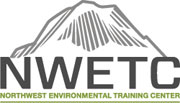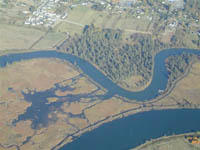|
Description: This 1-day course provides participants with a general overview of the development of Federal and State environmental laws and recent agency guidance, as well as recent changes to laws and policies. Attendees will review key terms that will help determine jurisdictional limits or exemptions to permitting, and will be introduced to the various aquatic resource permits that may be used for various site development projects. Time will also be spent covering permit application requirements; such as field studies that may be required, the permit review process and time lines, as well as agency coordination, how to get preliminary feedback on the project, and how to prepare a submittal package for a complex land development or use projects. Environmental regulations are constantly changing. Developers, land use planners, private landowners and public agencies require special permits when development impacts wetlands or other waters. Understanding the permitting process, timing required for agency review, documentation required for submitting a complete application, correctly completing the permit application form, and tracking improves the opportunity for permit approval. Obtaining permits for such projects as residential, commercial, right-of-way, docks, piers, and pipeline developments that impact freshwater (wetlands, streams, lakes, rivers, ponds) or marine (estuaries and other salt water areas) ecosystems is a complex process that will involve several agencies, each with their own specific requirements and varying timelines. Each state has different permitting protocols that can include the U.S. Army Corps of Engineers, U.S. Fish and Wildlife, NOAA Fisheries, various state agencies, counties, and municipalities. Understanding Federal and State laws and how multiple agencies interact are fundamental requirements for being able to effectively complete a submittal package and manage wetlands/aquatics projects through the permitting process. "Jim brought a lot of real world experience into the discussion. The course covered a lot of different laws & permit types." Anonymous, March 2014 “Jim is very knowledgeable and comes with a lot of experience. He was friendly and open to questions and discussion. He gave a lot of anecdotes from his work as a consultant – it was good to have a consultant instruct the class.” C. Holmes, June 2013 "Very friendly and knowledgeable-liked the recommendations on pitfalls in filling out the application." N. Chapman, August, 2013"
"I enjoyed the emphasis on the different regulatory agencies and court rulings." C. Gavin, August, 2013
"Very informative with a wide range of topics of discussion. Enjoyed understanding and discussing similarities and differences in the wetlands process of permitting based on different regions and areas." C. Williams, August 2013 "Jim has definitely been there and done that when it comes to wetlands permitting. This shows in his presentation which has an example he has been in for all situations identified in the course." C. Larson, November 2013
|
- You may register online or by calling the Northwest Environmental Training Center at (425) 270-3274. Online registration is strongly encouraged.
- Please wait to receive a course confirmation email, roughly one month prior to the class, before making any travel arrangements.
Intended Audience: This course is intended for environmental professionals, agency personnel.
Continuing Education Units: 0.70 CEUs
Course Topics
After completing this course, participants will be able to:
• Understand the permit process
• Identify the agencies involved
• Develop a time line for permit request review
• Develop coordination with agency personnel
• Identify the level of permit required
• Determine required supporting documents/field studies
• Prepare a permit submittal package
• Track the permit application
About the Instructor
 Jim Carsner is a graduate of the University of Washington, College of Fisheries and certified Professional Wetland Scientist with over 30 years of diverse professional experience in environmental consulting throughout the Northwest. His work has involved projects throughout Oregon and Washington and in Idaho, California, and Montana. Jim has served on the Board of Directors for the Washington State Weed Association and instructed courses on FIFRA for the National Recreation and Parks Maintenance Management School and Montana Department of Agriculture with emphasis on Aquatic Plant Management.
Jim has extensive experience in aquatic management practices and permitting including chemical and non-chemical approaches. He’s experienced in wetland and stream delineations, project planning and design, and mitigation and restoration planning. His extensive experience also includes design, permitting, regulatory coordination, and construction and mitigation monitoring.
What to Bring
Please bring a pen or pencil, and notepad if you would like to take notes (you may also choose to take notes in your book). Lunch will be on your own, but drinks and snacks will be provided throughout the day.
Billing Information
In order to guarantee a space in a course, the tuition must be paid in full TWO WEEKS before the first day of the course by either check or credit card. State and government agencies paying with a purchase order are allowed payment under the two-week time frame if a copy of the purchase order is received by NWETC.
If You Need to Cancel
Cancellations*-
With 31 or more days notice, we will offer a 100% refund or credit towards a future course. The credit is good for one year and may be applied to any course.
- With 30-8 days notice, we will offer a course credit towards a future course. The credit is good for one year and may be applied to any course.
- With fewer than 8 days notice, there is no course credit available
*Please note that attendee replacement is welcome at any time
Disability Accommodations
Disability Accommodations:To request disability accommodations, please contact us at info@nwetc.org or 425-270-3274 at least 30 days prior to the event.
|










